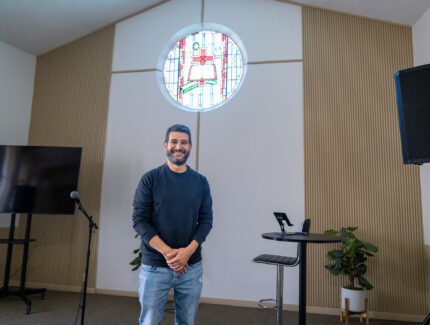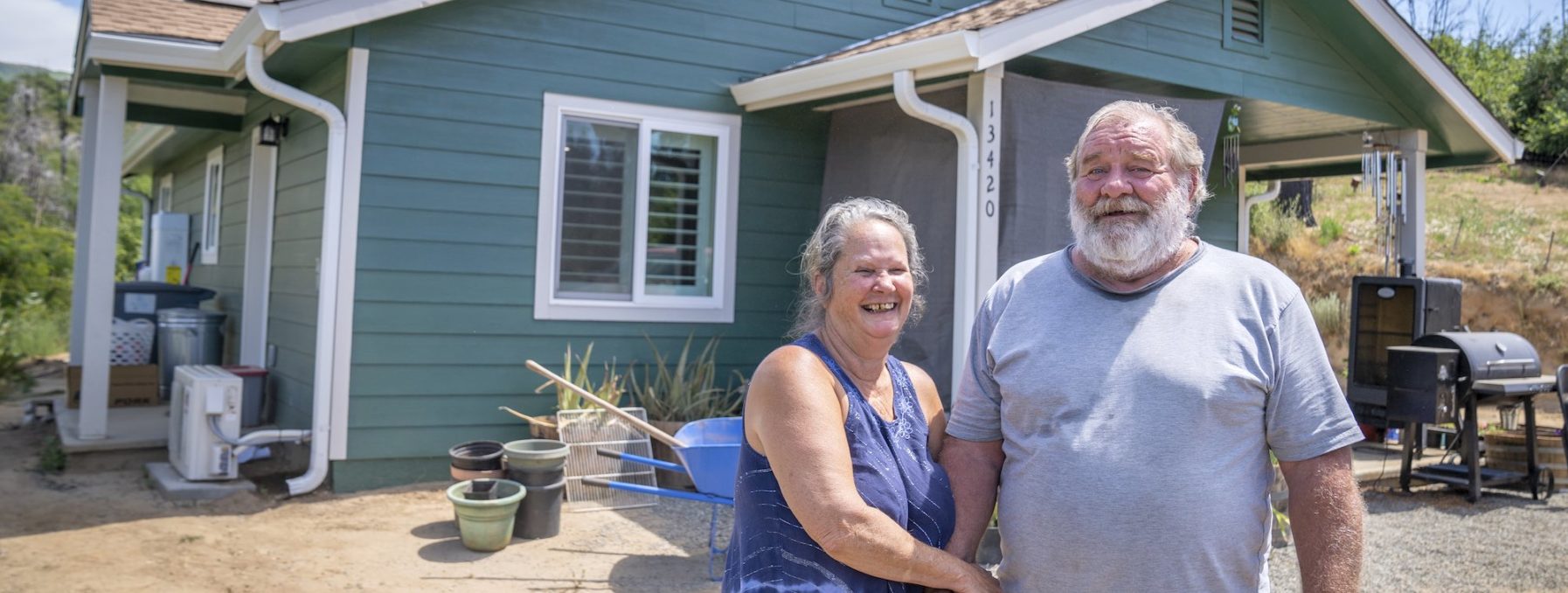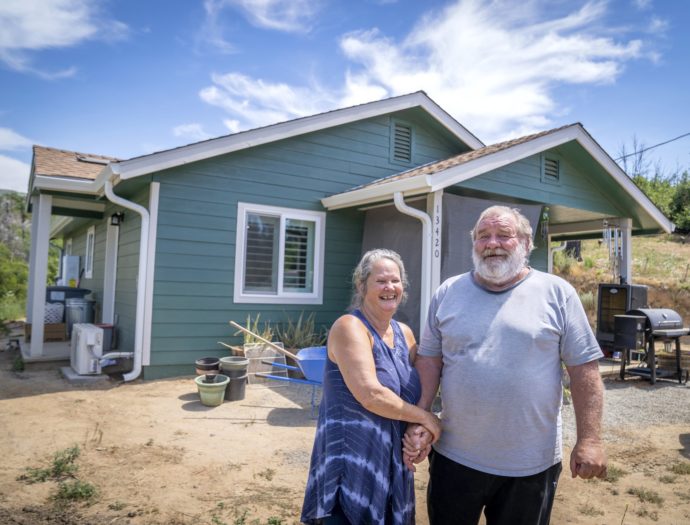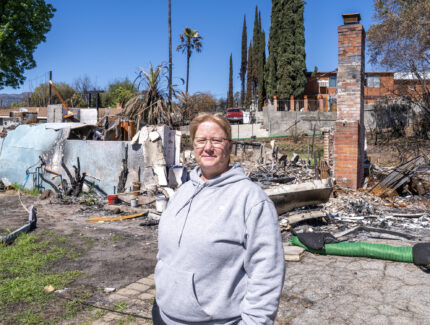


August 19, 2022
“We put it in God’s hands”
They barely got out.
It was 6:15 a.m. that November day in 2018 when Teri and John Rubiolo noticed a spot fire visible from their house, nestled on 10 acres in the scenic canyon of Concow, California.
“I called 911 and they said, ‘get out!’” said John.
They grabbed what they could and, in two cars, began making their way down the canyon road.
“There was a traffic jam like you wouldn’t believe,” recalled John, who at times lost sight of his wife following him because the smoke was so thick.
“The fire was jumping and trapping people, and our granddaughter is lucky to be alive,” said John. “We got two texts. One said, ‘Grandmom, where are you?’ Another said, ‘Grandmom, fire!’”
For hours, they heard nothing. Then they found out their family members had survived—but they had lost neighbors and their own home was burned to the ground. All told, 90 percent of the homes occupied by Concow’s 710 residents were destroyed by what came to be known as the Camp Fire.
“Whether we got a new home or not, we were going to help the community get back on their feet.”
— Teri Rubiolo
Today, the Rubiolos live in a new home built by Mennonite Disaster Service (MDS) volunteers. It’s more than just a house: it’s the hub of meals, household goods, and care that the Rubiolos have been offering in their community since before the Camp Fire happened.
Their mission—which they named “I Am’s Garden” or “God’s Garden,” is to provide food, essential household items, and a sense of care for the people in Concow.
Before the fire, they were already known as local angels—and even after losing their home they continued to operate their food pantry out of an RV trailer.
Now operating out of their new home, the Rubiolos can help even more people: Teri estimates that they’re providing 1,000 meals each week through a combination of hot meals, food to cook, or supplies—all provided via donations from local businesses and nonprofits. They’ve added a storage barn to expand services even more.
“We put it in God’s hands,” said Teri of their mission to help others.
“Whether we got a new home or not, we were going to help the community get back on their feet.”





